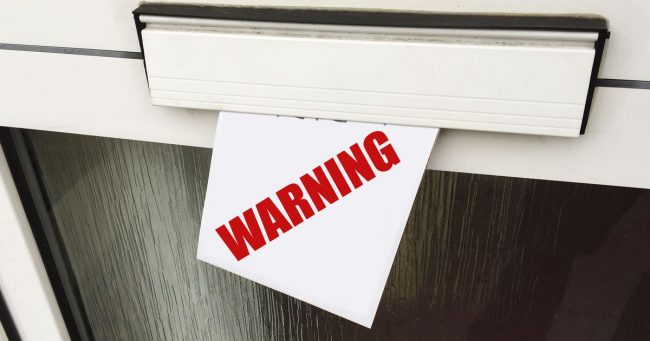Got Warning Letter for Using Kodi?
Can I get a warning letter for using Kodi? ISPs in UK, Australia, USA, Canada, and Germany are known to send out warning letters, copyright infringement notices, as well as DMCA notices for users who watch ‘pirated’ streams online. The same applies to users who download ‘illegal’ torrents. But how does this affect Kodi XBMC users? Can you get a warning letter, subscriber alerts, or educational emails from your ISP as a result of watching movies, TV shows, or live streams on Kodi?

Got Warning Letter for Using Kodi?
Why Did I Receive an Educational Email?
According to GetItRight.org, a warning letter is “triggered by the sharing of copyrighted material on a peer-to-peer network.” This basically means will receive a warning letter whenever you download or upload movies, TV shows, music files, or apps, from or to torrent sites. You’re probably wondering how copyright protection groups can see what you are doing online. Well, whenever you share a file via Bittorrent, your IP address, which is your digital fingerprint, gets added to that files torrent swarm. All users who either download or upload the same file can see your IP address. The only way to prevent this from happening is by masking your IP address using VPN.
Can I Get a Warning Letter for using Kodi?
I have covered the legal issues surrounding Kodi and its addons in details. What you basically need to know is that the Kodi app is totally legal. It does not differ much from any other app you use on PC, Mac, Android, Fire TV, in that regard. This, however, does not mean you cannot get into trouble for using some Kodi addons.
Exodus, Alluc, SALTS, SportsDevil, Pro Sports, and similar XBMC add-ons might get their streaming sources from ‘illegal’ streaming sites. What a lot of people do not know is that their ISP is keeping tabs on what they are doing online. What makes things worse is that some Kodi add-ons are P2P-based. That means it’s even easier for your ISP to trace your actions and dish out those warning letters.
Whether you are watching a movie, downloading a file, or simply browsing the web. Your ISP can trace your every move online. If you do watch streams from pirated source, whether deliberately or not, your ISP can see that.
This is basically why so many people have been getting those warning letters from Sky , BT, Virgin Media and TalkTalk, among others. So, what can you do to avoid getting caught?
Avoid Getting Warning Letter with VPN
To stay on the safe side, you ultimately have two choices. Either avoid using Kodi all together, or hide your IP address. In order to mask your IP on Kodi, you have to use a virtual private network. Now, before you start freaking out, this process is easier than you think. Here’s what you need to do.
- Sign up with a VPN provider.
- Download and install the VPN app on the same device you are using Kodi on.
- Launch the VPN application and connect to a VPN server.
This is all you have to do to keep all your activities on Kodi anonymous. Neither your ISP nor copyright protection groups can track what you are doing online once you’re connect to a VPN server.
Best VPN for Kodi?
The VPN provider that fits you the most depends on what you want to achieve while using VPN. If you want a VPN that is optimized for Kodi, sign up with ExpressVPN. Their free VPN apps work on PC, Mac, iPhone, iPad, Android, and even Firesticks. Any of the following VPN services will provide you with online anonymity.
Last Updated Today

- 30-Day Money-back Guarantee
- Unlimited Bandwidth
- Apps For All Your Devices
- 24/7 Live Support
Can I Get a Warning Letter for using Kodi?
Yes, you can get caught and receive a warning letter for using Kodi under certain circumstances such as if you live in UK, USA, Canada, or Australia and use unofficial addons. To avoid any legal issues, and protect your online privacy, also use VPN alongside Kodi. Don’t take any risk.











How many devices can I load up vanish on to?
Last time I checked it was 5 if not mistaken, that is for simultaneous usage.
Why is there a 7 day money back guarantee if their apps are free?
Hi Lee. The VPN apps are free, but you do need an IPVanish account in order to sign into them.
So essentially because you have to pay for an account, the apps aren’t free.
That is correct. There are some free VPNs out there you could try, but I would never recommend them. They are too limited, impose bandwidth caps, and may even contain malicious malware or viruses. So basically instead of protecting your privacy with VPN, you’d be exposing yourself even more.